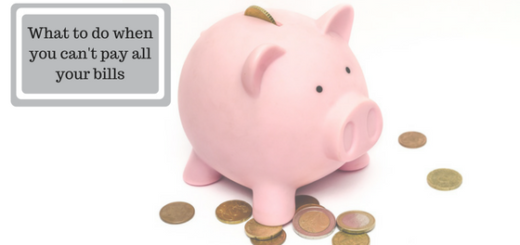Everything You Need to Know About Student Loan Debt
 The total amount of credit card debt in the United States has grown to a monstrous total of $746 billion, and it impacts about 77 percent of adults. But, there is another type of debt with an even more pervasive impact on our lives right now. According to studies, the amount of student loan debt owed has risen to a staggering $1.48 trillion, spread among 44 million borrowers. If you’re one of the 44 million people currently juggling your student loans, here’s what you need to know to help you maintain or improve your financial health this year.
The total amount of credit card debt in the United States has grown to a monstrous total of $746 billion, and it impacts about 77 percent of adults. But, there is another type of debt with an even more pervasive impact on our lives right now. According to studies, the amount of student loan debt owed has risen to a staggering $1.48 trillion, spread among 44 million borrowers. If you’re one of the 44 million people currently juggling your student loans, here’s what you need to know to help you maintain or improve your financial health this year.
If affects you differently than credit card debt
Credit card debt and student loan debt are two of the most widely held types of debt. Unfortunately, many people may be burdened by both. Knowing how each type of debt affects you can help you develop an effective strategy for managing and staying on top of both debts.
How are they alike? How are they different?
Both debts are unsecured, meaning a lender cannot seize any of your assets if you fall behind on payments. And, both types of debt will impact your credit score. Making on-time student loan and credit card payments can benefit your credit score, while missed either payment can damage your score. However, while your credit card balance will vary each month, your student loan debt is an installment debt, so you pay a predetermined amount over a fixed period. With credit card debt, if you cannot pay the full balance each month, you will owe additional interest which compounds the longer you owe a balance.
With student loans, you have a few more options (see below!) when it comes to repaying your loans. But, like credit card debt, there are consequences for not making these payments. Late student loan payments are reported to the three major credit bureaus (Equifax, Experian, TransUnion) after 90 days. You will also have to pay a late fee.
There is more than one type of student loan debt
Do you know what type of student loan you have? The type of loan you have will determine how you pay it back, the interest you pay, and where your money will come from.
Federal loans vs. private loans
Federal loans are government funded and have a fixed interest rate. This means your interest rate will not change while you are paying off your loan. Depending on the type of federal loan you have, interest will either accrue while you are in school or will not accrue until you graduate. With federal loans, you also enjoy the benefit of not making payments until after graduation. There is also more than one type of federal loan. Your federal loan can be subsidized or unsubsidized. Subsidized loans are given to students with significant financial needs, while unsubsidized loan recipients do not need to prove a financial need. Learn more about types of federal loans here.
Private loans are less common, but some people do opt for this choice. They are bank-funded, so your interest rate can change with the market. So, what may start as a low-interest loan could change at any time. Also, with a private loan your interest accrues as soon as you receive the loan, and payments begin immediately. Typically, private loans are only advantageous if you have a high and steady income secured before or immediately following graduation.
You have payment options
Your student loan lender will allow you to select a repayment option that best suits your needs. You can choose an income-driven repayment plan, meaning your payments will increase at fixed intervals over time. This assumes your income will also increase over time, allowing you to make larger payments.
The other main repayment option is the standard plan. With this plan you you pay the same amount throughout the duration of your payback period. Once you select your repayment option, you can then choose from several different options that each include different term lengths, payment amounts and interest rates. Click here to see more of your options.
You have relief options
While many debt settlement and consolidation loan programs do not cover student loan debt, there are still several options that are a much better alternative to skipping your payments all together.
Deferment
Student loan payments can be postponed until you can afford your monthly payment. This process is known as deferment. Or, if you can afford only part of your payment, you can work with your lender to reduce your payment. Therefore, you’re still making progress, but in a way that you can afford. Learn more about deferment programs here.
Forgiveness
Another option possibly available to you is student loan forgiveness. While many companies may claim to wipe away student loan debt, the only real way to get student loans forgiven is through government programs. To qualify, your loans need to be federal loans, and you either need to have an income-based repayment plan, or be employed by the government or a public service or nonprofit organization. Learn more about your loan forgiveness options here.


